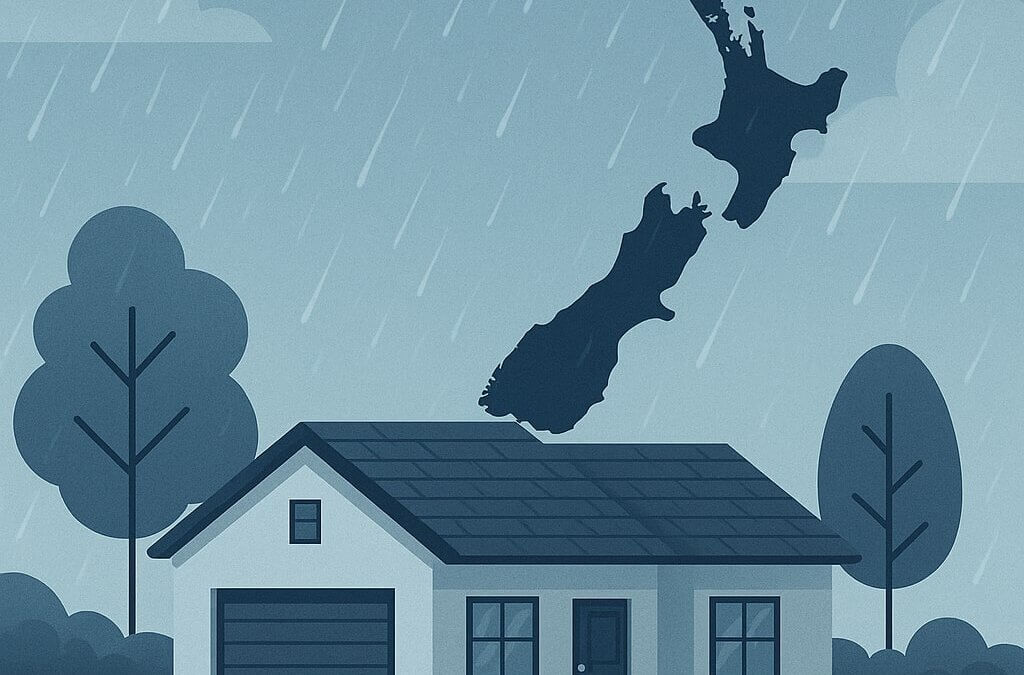Temperatures across New Zealand are getting cooler, there is increased rainfall, and higher humidity levels—conditions that can wreak havoc on vacant or unmonitored properties. Whether you’re a landlord, real estate agent, or property investor, it’s crucial to take preventative steps now to avoid costly issues like mould growth, water damage, or pest infestations.
Here’s how to keep your property safe and sound through the changing season.
Why This Change of Season Is High Risk for Vacant Homes
Unoccupied homes often go unchecked for weeks or even months, especially if they’re on the market, in transition between tenants, or part of an investment portfolio. In autumn and the beginning of winter, the combination of cooler weather and increased moisture can quickly lead to:
- Condensation and poor ventilation, fuelling mould growth
- Blocked gutters and stormwater overflows, leading to roof or interior leaks
- Pest and rodent intrusion, as animals seek warmth and shelter
Without regular checks and seasonal maintenance, small issues can turn into major damage by winter.
Property Protection Checklist
Here are practical ways to safeguard your vacant property during the cooler season:
- Ventilate to Prevent Mould
Mould thrives in stagnant, moist environments. For vacant homes:
- Leave internal doors open to allow airflow.
- Use moisture absorbers or a dehumidifier if electricity is available.
- If possible, schedule occasional visits to open windows on dry days.
- Clear Gutters and Downpipes
Falling leaves can clog gutters fast. Blockages lead to:
- Water pooling on the roof
- Overflow into internal ceiling spaces or walls
- Dampness and mould in ceilings and corners
Clean gutters early in the season and consider installing gutter guards for ongoing protection.
- Inspect the Roof and Flashings
Loose tiles, cracked flashings, or gaps around chimneys can let in water during heavy rain. A quick inspection before the worst of the weather hits can save thousands in water damage repairs.
- Seal Gaps to Keep Pests Out
Autumn is prime time for rodents and insects to find entry points into empty homes. Check for:
- Gaps in eaves, walls, or vents
- Damaged weather stripping around doors or windows
- Evidence of nests, droppings, or gnaw marks
Arrange pest control if needed, and address any structural access points.
- Secure and Monitor the Property
Vacant homes are more likely to be targeted by trespassers or left unnoticed after damage. Ensure:
- All doors and windows are locked and secure
- Alarm systems or CCTV cameras are installed
- Regular inspections by a property manager or trusted contact are arranged
- Schedule Routine Maintenance
Even if the property is unoccupied, it still needs care:
- Check for leaks under sinks or around hot water cylinders
- Test smoke alarms and security lighting
- Flush toilets and run taps occasionally to prevent stagnant water and dry traps
Call in the Experts When Issues Arise
Despite the best precautions, things can go wrong. If a leak, mould outbreak, pest issue, or hazardous contamination is discovered, professional remediation is essential.
At CSS, we work with landlords, investors, and property managers across Auckland to handle:
- Mould removal
- Flood and stormwater restoration
- Biohazard and pest-related cleanup
- Hoarder and unattended property decontamination

